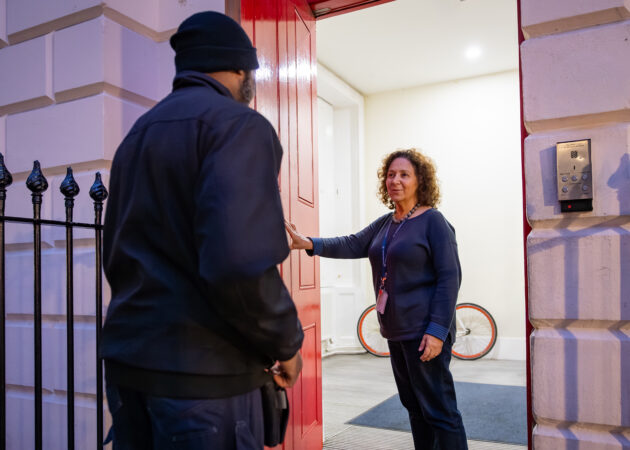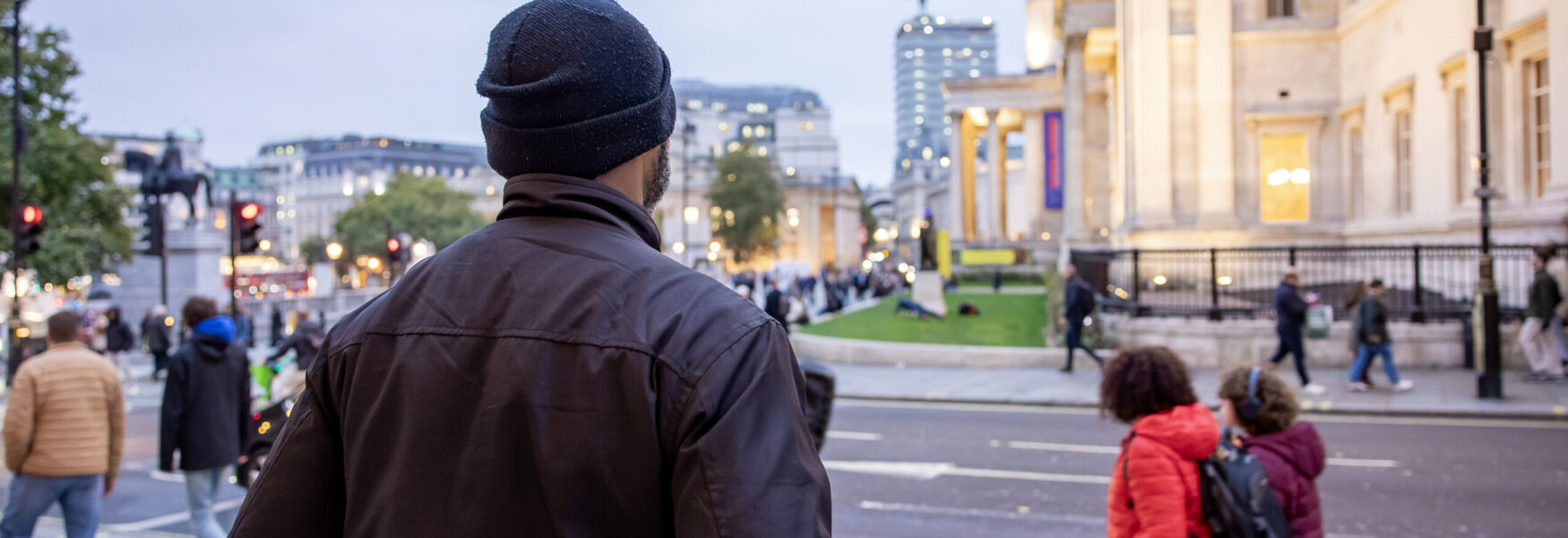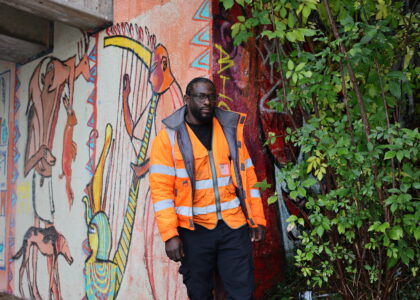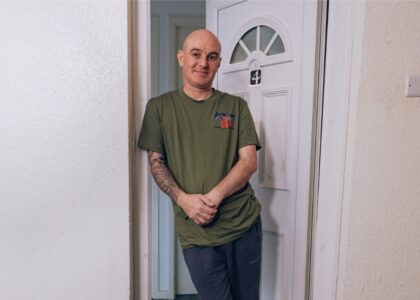Mensah was living in an ant-infested flat, with broken windows that let the cold in. The cold caused flare-ups of his Raynaud’s, a condition in which exposure to cold causes pain and numbness. After complaining about this to the landlord, he was served a no-fault eviction, and was forced to leave. For the next year, Mensah was homeless. Occasionally he’d have a friend’s sofa for the night, but usually he slept in a night shelter or on the street. He managed to hold on to his job in retail, despite never knowing exactly where he was going to eat, wash or sleep. It all took a massive toll on his mental health.
He said, “I was homeless for a full year and a month. It was the worst time of my entire life.”
Then Mensah heard about The Connection at St Martin’s. He arrived, and was put in touch with Marina, a Skills and Opportunities Coordinator at The Connection. The first step was to find him somewhere to live – a room in a shared house, where he feels safe and comfortable. About his new home, Mensah said, “More than anything else, it’s a sense of safety. It’s having somewhere that I can keep myself alive, and where I can look after myself in the way I need to. Somewhere I can actually call a home.”

As well as giving a stable base, The Connection were able to help Mensah find a career. To Marina, it was clear that Mensah had a real drive to work, so they worked on his CV together and started to complete application forms. When an apprenticeship at a large construction company came up, Mensah was determined to go for it. Mensah mentioned to Marina that he struggled with job interviews as he has autism. To prepare, Mensah and Marina practised interview techniques until he felt more confident and knew what he wanted to say on his own behalf.
That was a year ago. Now, he is thriving on his apprenticeship – learning skills that will carry him through the rest of his life. “For me, it’s important to have a purpose in life. Now that I’m in a job that I want to be in, it feels like I’m finally working towards a purpose. A purpose that I feel is worthwhile.”
About the next year, Mensah said “I feel hopeful. This apprenticeship is two years, so by the time it’s over, I’ll hopefully be fully qualified. Throughout this time, I’m already making solid progress towards that. It feels like I can finally live life properly again, and just take it from here.”
*Mensah’s name has been changed to protect his identity, but his story is real.


